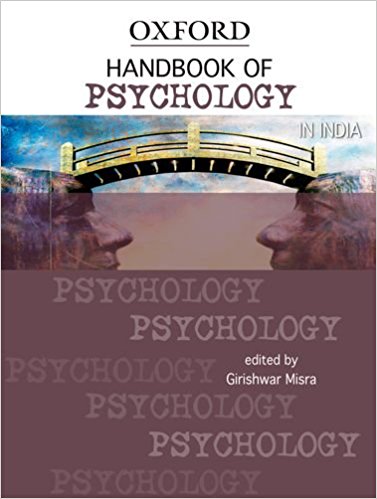The study of psychology is growing roots and gaining its own threshold in India. The book is both a culmination and proof of the vibrant field of the subject in the country. As Misra points out in the preface,’The publication of this volume indicates that there is substantial work being done by Indian scholars that needs to be shared.’ This Handbook fills an obvious lacuna felt by the teachers, researchers and students of psychology in India. Misra has put together a valuable resource on psychology in India. The authors consist of researchers, practitioners and academicians belonging to the various fields of knowledge and inquiry of the subject in the country. This selection of authors provides authenticity and richness with the aim of presenting indigenous understanding and ‘opening the world of Psychology in the Indian context’.
The book has been divided into six units. The first unit, called Con-ceptual Foundations contains four chapters. K. Ramakrishna Rao’s chapter on the ‘Trident Model of the Person’ in Indian psychology provi-des a theoretic framework envisag-ing psychology as the study of con-sciousness. While explaining the Indian perspective Rao provides insightful analysis and a sharp com-parison and critique of the domi-nant western understanding. Sangeeta Menon discusses inter-disciplinary perspectives in the area of cognitive sciences and neuro-psychiatry. The author challenges the limited empirical under-standing of ‘consciousness’ studies; and urges a shift in focus from ‘third-person neural data to first person qualities of will power and self effect’. The third chapter explores the new models and approaches in understanding the working of the mind. Narayanan Srinivasan explores multiple techniques enabling an interface of psychology and neuroscience. He also talks about the body (embodied cognition approaches) and the environment (situated cognition approaches) playing an important part in shaping the mind. The last chapter of this section is the articulately presented ‘Culture in Psycho-analytical Thought’ by Sudhir Kakar. Kakar places culture and history as important dimensions of understanding, interpreting and interacting with theory. He explores the ‘culture’ dimension in the theories of Erikson, Horney, Winnicot and Kohut.

